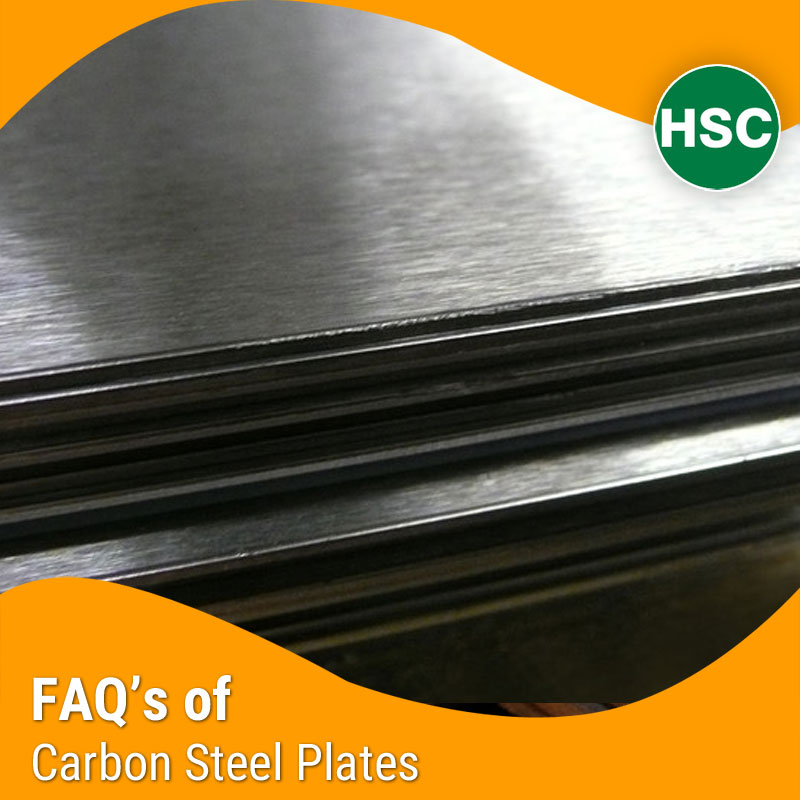Can Carbon Steel Plates Be Used for Pressure Vessel Manufacturing?
Short Answer: Yes, but only specific grades of carbon steel plates that meet pressure vessel standards like ASTM A516 or IS 2002.
Not all carbon steel plates are pressure vessel quality.
Some grades (like A36 or IS 2062) are strictly for structural use, while others like A516 Gr 60/70 are made for pressure service.
What Type of Carbon Steel Plate is Suitable for Pressure Vessels?
Common Pressure Vessel Quality (PVQ) Carbon Steel Plate Grades:
- ASTM A516 Grade 60 / 70
- IS 2002 Grade 1 / 2 / 3
- ASTM A537 Class 1 / 2
- EN 10028 P265GH / P355GH
These plates are normalized and meet toughness, notch impact, and chemical composition standards required for safe pressure containment.
Why Normal Structural Carbon Steel Plates (like A36 / IS 2062) Are Not Recommended?
| Parameter | Structural Carbon Plate | Pressure Vessel Plate |
|---|---|---|
| Yield Strength | Sufficient for static loads | Designed for internal pressure |
| Impact Testing | Optional | Mandatory at low temps |
| Heat Treatment | As-rolled | Normalized / Quenched |
| Design Standards | IS 2062 / ASTM A36 | ASTM A516 / ASME / IS 2002 |
Using wrong grade in pressure vessels can cause failure under pressure and temperature cycles
Applications of Pressure Vessel Carbon Steel Plates
- Boilers
- Storage Tanks (Under Pressure)
- Heat Exchangers
- Refinery Vessels
- Chemical Processing Units
- LPG Storage Bullets
- We supply carbon steel plates for all these applications, tested as per ASME and ASTM pressure vessel standards.
ASTM & IS Standards for Pressure Vessel Plates
| Standard | Applicable Grades |
|---|---|
| ASTM A516 | Gr 60, Gr 70 |
| IS 2002 | Grade 1, 2, 3 |
| ASTM A537 | Class 1 / 2 |
| EN 10028 | P265GH, P355GH |
Each plate is heat-treated, tested, and supplied with certified Mill Test Certificates (MTC).
Thickness Range for Pressure Vessel Carbon Plates
| Parameter | Range |
|---|---|
| Thickness | 6 mm to 150 mm |
| Width | Up to 3000 mm |
| Length | Up to 12000 mm |
| Cut-to-Size | ✅ Available |
| Profile Cutting | ✅ Available for heads, shells |
Heat Treatment Requirement
As-Rolled condition NOT allowed for most pressure vessel plates.
Must be supplied as:
- Normalized
- Normalized and Tempered (N&T)
- Quenched and Tempered (for higher strength grades)
Welding & Fabrication Notes
- Pre-heat recommendations for thicker plates
- PWHT (Post Weld Heat Treatment) if required by design code
- Weldable using standard SMAW, MIG, SAW processes
Plates can be bevel-cut and supplied with edge preparation.
Why Source Pressure Vessel Carbon Plates from Hindustan Steel Corporation?
- Export-ready stock for pressure grades like A516 / IS 2002
- MTC with all chemical and mechanical test results
- Third-party inspection clearance (SGS, TUV, Lloyd’s)
- Fast delivery for urgent vessel fabrication projects
Export Support for Pressure Vessel Carbon Plates
We export pressure vessel grade carbon steel plates to:
- USA
- UAE
- Saudi Arabia
- South Africa
- Vietnam
- Qatar
CIF / FOB / Ex-Works delivery with all required export documentation
Buyer Tip: How to Specify Pressure Vessel Plate in Your RFQ
Clearly mention:
- ASTM / IS / EN Standard
- Grade (e.g., A516 Gr 70)
- Thickness & Size
- Impact Test Requirement (if any)
- NACE / HIC / UT Testing (if needed)
Certifications and Testing Support
We provide:
- MTC as per EN 10204 3.1
- NACE / HIC / SSC test reports (if needed)
- Impact test reports (CVN)
- UT Level II / III Reports
- Third-party inspection clearance
FAQs – Can Carbon Plates Be Used for Pressure Vessels?
Can carbon steel plates be used in pressure vessels?
Yes, but only specific grades like ASTM A516, IS 2002.
Which carbon steel grades are used for pressure vessels?
A516 Gr 60/70, IS 2002, A537, EN 10028 P265GH.
Do pressure vessel plates require impact testing?
Yes, for many service conditions
What is the required heat treatment for A516 plates?
Normalized condition.
Is UT testing mandatory for pressure vessel plates?
Often required.
What is the difference between structural carbon plate and pressure vessel plate?
Material composition, heat treatment, and mechanical properties.
What standards cover pressure vessel carbon steel plates?
ASTM A516, IS 2002, ASTM A537, EN 10028.
Where can I get a quote for pressure vessel grade plates?
WhatsApp, Email, or Call us for fast quote.
Don’t risk using the wrong material for your pressure vessel fabrication.
Contact Hindustan Steel Corporation today.
Ask for:
- CIF/FOB pricing for A516/IS 2002 grades
- Test certificate samples
- Current ready stock availability

